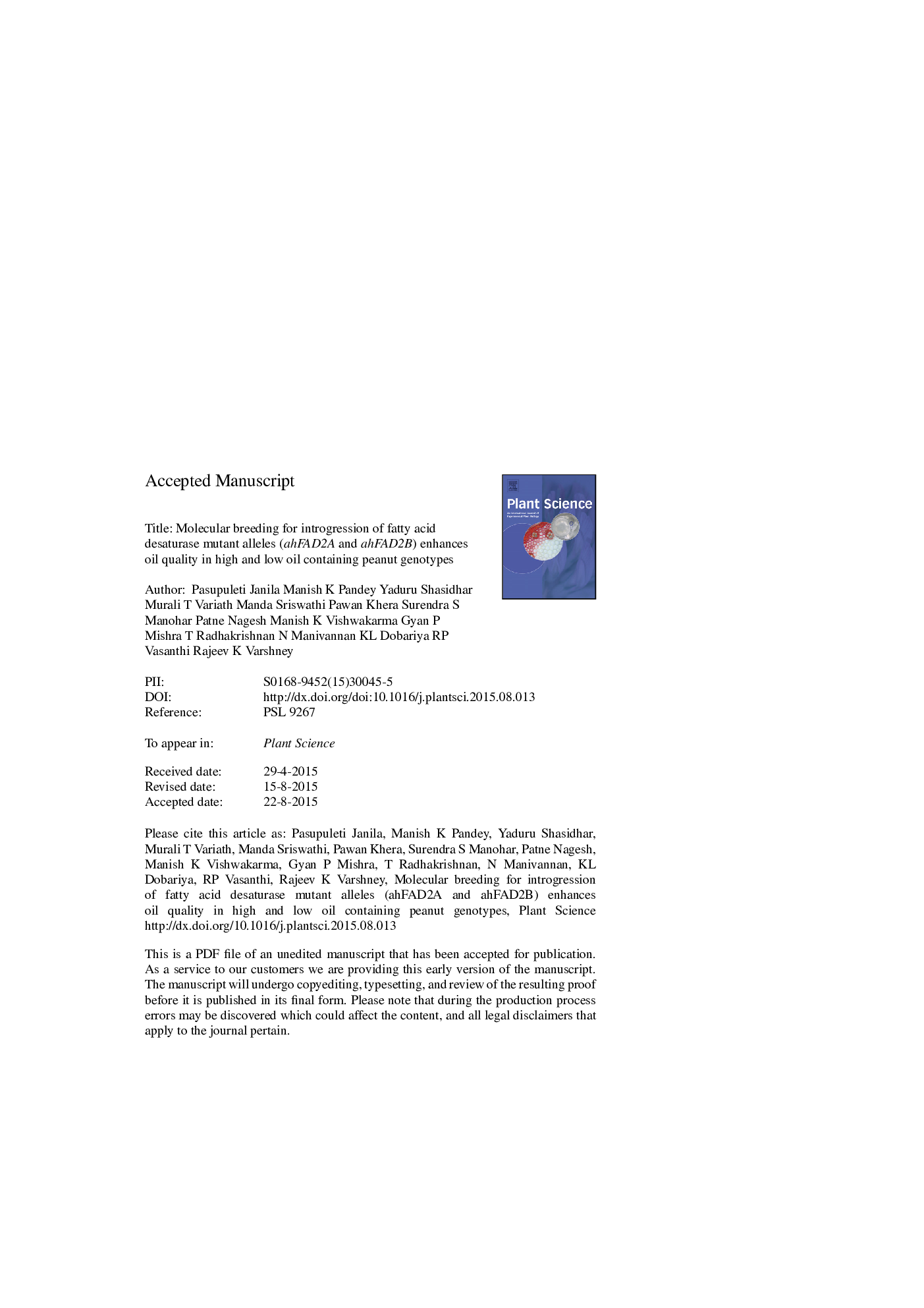| Article ID | Journal | Published Year | Pages | File Type |
|---|---|---|---|---|
| 8357314 | Plant Science | 2016 | 43 Pages |
Abstract
High oleate peanuts have two marketable benefits, health benefits to consumers and extended shelf life of peanut products. Two mutant alleles present on linkage group a09 (ahFAD2A) and b09 (ahFAD2B) control composition of three major fatty acids, oleic, linoleic and palmitic acids which together determine peanut oil quality. In conventional breeding, selection for fatty acid composition is delayed to advanced generations. However by using DNA markers, breeders can reject large number of plants in early generations and therefore can optimize time and resources. Here, two approaches of molecular breeding namely marker-assisted backcrossing (MABC) and marker-assisted selection (MAS) were employed to transfer two FAD2 mutant alleles from SunOleic 95R into the genetic background of ICGV 06110, ICGV 06142 and ICGV 06420. In summary, 82 MABC and 387 MAS derived introgression lines (ILs) were developed using DNA markers with elevated oleic acid varying from 62 to 83%. Oleic acid increased by 0.5-1.1 folds, with concomitant reduction of linoleic acid by 0.4-1.0 folds and palmitic acid by 0.1-0.6 folds among ILs compared to recurrent parents. Finally, high oleate ILs, 27 with high oil (53-58%), and 28 ILs with low oil content (42-50%) were selected that may be released for cultivation upon further evaluation.
Keywords
Related Topics
Life Sciences
Agricultural and Biological Sciences
Plant Science
Authors
Pasupuleti Janila, Manish K Pandey, Yaduru Shasidhar, Murali T Variath, Manda Sriswathi, Pawan Khera, Surendra S Manohar, Patne Nagesh, Manish K Vishwakarma, Gyan P Mishra, T Radhakrishnan, N Manivannan, KL Dobariya, RP Vasanthi, Rajeev K Varshney,
